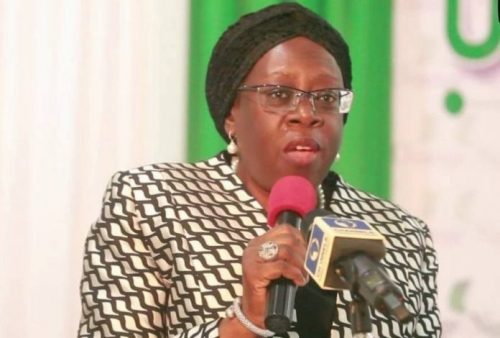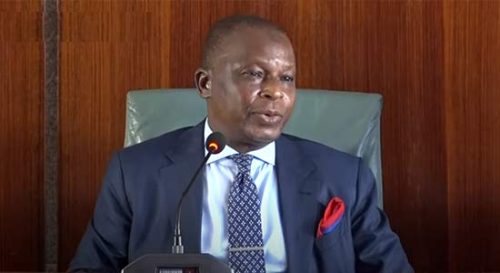2019: In one fell swoop, court kills polls sequence bill

* Says NASS lacks power to alter INEC’s timetable
* Affirms INEC’s powers to organize, supervise, fix election dates
* Nullifies Section 25 of Electoral Act (Amendment) Bill, 2018
The Federal High Court in Abuja on Wednesday nullified section 25 of the Electoral Act (Amendment) Bill, 2018 that seeks to alter the sequence of 2019 elections for the offices of the President of the Federal Republic of Nigeria, Governor of States, members of the National Assembly and members of the State Houses of Assembly.
In his judgment in the suit filed by the Accord Party against the National Assembly, Attorney General of the Federation (AGF) and the Independent National Electoral Commission (INEC), Justice Ahmed Mohammed also nullified the section altering the sequence in which elections has been held in the past.
The judge further held that INEC has the sole constitutional power to organise, supervise and fix elections dates.
The judge also held that the electoral body, having announced elections dates for the offices of the President , Governors , members of the National Assembly and members of the States Houses of Assembly for the 2019 elections, the National Assembly cannot alter, reserve or reorder it.
According to Justice Mohammed, the National Assembly has no power to dictate to INEC the order in which the 2019 general election should be conducted.
The judge said, “It is the sole responsibility of the third defendant (INEC) to organise and conduct elections, including fixing of dates for the elections.
“The power of INEC to organise and conduct elections in this country cannot be taken away by the Electoral Act”.
Justice Mohammed observed that at the time the Electoral Amendment Bill 2018 was passed by the National Assembly, INEC had already fixed the dates for the 2019 general elections and held that the National Assembly clearly acted in breach of the principle of separation of powers.
The Judge then said: “After perusing submissions of counsel in this matter, I declare Section 25 of the Electoral Act 2018, which is the section that contravenes the provisions of the constitution, a nullity.
“I grant reliefs 1 to 10 as prayed. I refused relief 11(I) because the President has already declined his assent”.
Earlier during the judgment, the judge overruled the objections of the National Assembly (first defendant), asking the plaintiff’s Originating Summons to be dismissed on ground of locus standi.
Dismissing the preliminary objections, the judge held that the plaintiff has the locus standi to institute the legal action as its affidavit evidence shows that it is a registered political party in the country.
He further held that the plaintiff’s case was not academic as it is purely an issues of interpretation of the Constitution.
Justice Mohammed said, “The suit can not be described as an abuse of the court process either. It never irritate”.
“The plaintiff’s suit seeking for the interpretation of certain provisions of the constitution cannot be said to be an abuse of the process of the court”.
Justice Mohammed said that the complaint by the National Assembly that the President was not joined as a necessary party was not a ground to dismiss the suit because the AGF was a party to the suit.
Lawyer to the Accord Party, Chief Wole Olanipekun (SAN), had approached the court, challenging section 25 of the Electoral Act (Amendment) Bill, 2018, after President Muhammadu Buhari withheld his assent to the bill.
In the plaintiff’s originating summons, the court was urged to declare that the legislative powers vested in the National Assembly by the constitution do not empower it with the right or authority to dictate to INEC the way and manner it should organise, undertake and supervise elections to the offices of the President, Vice President, the Governor and Deputy Governor of a state as well as federal and state legislators, among other declarations.










